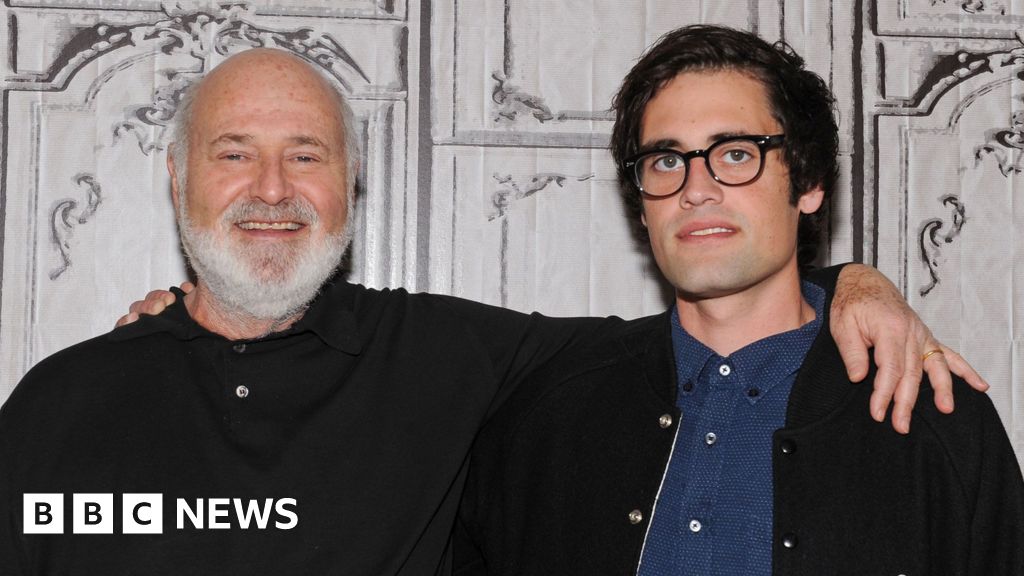A woman with fresh blonde highlights, dazzlingly white teeth and an impossibly perfect tan shows off her preppy butter yellow and light blue outfit in her dorm room, addressing TikTok in a sing-songy voice as her wrists full of bracelets jangle around. She’s Izzy Darnell, the Cooper Flagg of RushTok — a top prospect in an increasingly commercialized process.
“Hey, girlfriends! So, today is day four of Alabama Rush … and I would like to just show you guys my outfit for the day!” She takes a step back, breaking character and dropping into her natural register. “I’m so sorry. Someone hit me for that.”
RushTok is a corner of the internet that reemerges every year in August as thousands of young women attend several days of themed events as part of the sorority recruitment process, logging their outfits and outcomes on TikTok for all to see. It took off at the University of Alabama in 2021 and has now expanded to include current sorority members hoping to recruit new students for their sisterhood at schools across the country.
Darnell is an influencer whose career began in high school, sharing videos of classic rites of passage like prom and football games. Now, an 18-year-old freshman at the University of Alabama, she has 1.1 million followers on the social media platform alone. She’s also a bit of a RushTok nepo baby, elevating her status among recruiters as a potential return-on-investment.
The same year RushTok took off, the NCAA adopted an interim policy allowing athletes to monetize their publicity rights, starting a wave of name, image and likeness (NIL) deals and turning young talent into small businesses. Jake from Boston, an online personality known as the “Gossip Girl of Boston sports,” says the same business opportunity should be extended to the potential new members (PNMs) of sororities.
The secretive rush process, which pushes young women to compete with their classmates to appear perfectly interesting and cheerful through sweltering temperatures and brutally long days for a chance to join a sisterhood, has been described as “psychological warfare” and “the Hunger Games for college girls.” Many of its participants are discouraged from speaking with the media about their experiences directly.
Thanks to social media, it’s an online reality show now in its fifth season. Since then, RushTok has expanded far beyond Alabama, driven billions of views, launched dozens of influencer careers and created an advertising boom for brands and universities. It inspired at least one documentary, a TV series, a podcast and book.
Izzy’s sister, Kylan Darnell, was one of the first and most successful potential new members to attain massive social media stardom by sharing what she wore and experienced during the University of Alabama’s recruitment process. Though Izzy’s desire ahead of rush was to create an identity separate from her sister, things didn’t go according to plan. Kylan made headlines when she opted out of rush to protect her mental health. Izzy inadvertently followed in Kylan’s footsteps when she withdrew from the process before matching with a sorority on the final day.
Rush may have introduced the world to the Darnell sisters, but they have a bright future online regardless of what Greek letters they wear or don’t. Other budding content creators are hoping for the same outcome when they graduate, but the strategizing about how they might be able to create a monetizable brand for themselves starts long before they set foot on campus.
‘Start-ups moving into a talent incubator’
Women might be joining Greek life to make connections for their futures, but they also see influencing as a valid career option. They shouldn’t just be accepting brand deals — they should be thinking about them all the time.
Jake, like many other RushTok enthusiasts, likens the yearly trend to a reality TV show that desperately needs to be monetized.
“We need to shift the perception of these being 18-year-olds who are new and fresh and young, versus these being the equivalent of start-ups moving into a talent incubator,” he tells Yahoo.
Jake commentates on rush content on TikTok as if it’s a sport and he’s a radio host. Sports and rush go hand-in-hand — Alabama was the original epicenter of RushTok because its football program has been dominant for 20 years. That’s the major marketing vehicle for any big school — Alabama’s regular Saturday games show onlookers how cool it is to be in attendance, and sorority influencers offer the same experience on social media for Friday nights out and Sunday mornings. That’s why Izzy is compared to Flagg; she was the face of the sport, so to speak.
“She might not be the most polished, but that’s what makes her the next Alix Earle. She’s completely authentic,” Jake says of Izzy. “She’d be the one that I’d think would yield the most long-term return on investment.”
Aileen Manso, a talent manager at influencer marketing agency The Digital Dept., represents the Darnell sisters. She tells Yahoo that RushTok “offers an excellent opportunity to identify potential influencers, as it allows us to observe how they navigate high-pressure situations and whether they are naturally at ease in front of the camera.”
Chasing dreams
It’s not just college students who see sorority recruitment as an investment opportunity. Companies do too.
Outfit of the day videos, in which PNMs list where they purchased the items they’re wearing for certain events, are a staple in RushTok. The comments of those videos are now flooded with brands. Brands like Poppi, Sephora and Kohl’s want to be associated with these popular, beautiful, put-together women.
One of the most popular labels among sorority members is LoveShackFancy, an ultra-feminine brand that embraces floral prints and pastels. Rebecca Hessel Cohen, its founder and creative director, tells Yahoo the “sense of anticipation, joy and community [feels] aligned with our world of ruffles, bows and romance.” LoveShackFancy partners with sorority members, outfitting them in the latest styles and elevating their content on its own pages.
For small business owners with smaller marketing budgets, RushTok offers a less costly opportunity to appeal to a wider audience without having to shell out massive amounts of cash to sponsor the biggest, most established creators. Brittney Bennett, founder of tanning company Be Bronze Studio, tells Yahoo she flew herself from California to Tuscaloosa, Ala., for rush after seeing it explode on TikTok to give women spray tans.
“RushTok helped me expand into Alabama, a market I never would have reached,” she says. “Consumers want someone who feels real and relatable. Nothing is more relatable than a college girl chasing her dream.”
That sentiment is what has given RushTok its staying power — and created a career launchpad for so many young women.
The most important thing that these content creators can do is be authentic, because “today’s college students have an uncanny ability to detect insincerity from a distance, and they are quick to call it out when they see it,” Manso says. PNMs have to somehow balance being perfect with being themselves, but remain business-minded about it.
The influencer lifestyle trajectory
The content pipeline doesn’t end after the original rush process, either.
RushTok can be the first step — or the next step — in a long content creation career. Jessica Maddox, a social media expert and media studies professor at the University of Georgia, tells Yahoo that RushTok can be the start of a journey that audiences and brands can join these young women on, which she calls the “influencer lifestyle trajectory.” As a professor at Alabama during the heat of Bama Rush, as it’s known online, Maddox got a firsthand look at how the process impacts college students.
“This can be a huge launching point from the high school influencer to the collegiate influencer. Then you become a young workforce influencer. When you’re a 20-something, that continues to engagement and marriage and babies,” Maddox says. “TikTok really let rush explode into an accelerated pipeline to celebrity … I think rush is like an HOV lane for young women in high school to amplify their career because they know there’s an audience for it.”
But that’s the thing — these are “very new adults,” Maddox says. They might be thinking like businesses and start-ups, but for the most part, they’re just figuring out who they are and leaving their parents’ houses for the first time.
But that’s the thing — these are “very new adults,” Maddox says. They might be thinking like businesses and start-ups, but for the most part, they’re just figuring out who they are and leaving their parents’ houses for the first time.
The tide turns for RushTok — and sororities
The fame that comes from RushTok comes with a cost — widespread hate and scrutiny, and a total elimination of privacy. That’s hard to navigate at a young age. As more people become influencers and speak out about the price of fame, Maddox predicts that sororities will begin to more explicitly rein in how their members post.
The overall attitude toward RushTok has changed since its first season. Jessica Rauchberg, an academic expert on influencer culture and assistant professor of communication technologies at Seton Hall University, tells Yahoo that a lot of online spectators have said “it’s not the same, it’s changed [and] it feels really manufactured.” Authenticity is the attraction for brands and marketers — a decline in that could diminish the impact of RushTok. Ironically, it’s the increase in brands and influencers capitalizing on RushTok that’s contributing to that decline.
“When you open up the app and it’s endless scrolling through Bama Rush, it’s [also] endless advertisements,” Rauchberg says.
These influencers aren’t just advertising for their particular sororities, universities and brand partners — they’re promoting rush in general. As a result, the sorority recruitment process is now even more competitive. Trisha Addicks, the first official rush consultant who started her business It's All Greek to Me in 2017, tells Yahoo that “there are not enough sororities on these campuses to accommodate the numbers” of people who want to rush after seeing the process on TikTok.
For $4,500, Addicks’s team of 19 mentors offers clients help picking out outfits and hairstyles for rush, real-time advice on the nitty-gritty of the process, like getting referrals and navigating stress, resume writing, Zoom interview guidance and help making contacts. They offer mock rounds so people can navigate the mental difficulty of quickly recovering from rejection and projecting cheerfulness.
Addicks emphasized how important it is to prepare intentionally for rush, and recommended potential recruits start curating their social media presence in the way they want to be perceived by sororities by the start of their senior year of high school at the latest.
Budgeting for rush, though, is not something she teaches. She says RushTok created a misconception that participants need to be decked out in designer clothes and expensive outfits. Borrowed outfits and Target clothes work fine.
Addicks doesn’t think any of her former clients have become influencers — that’s not what they typically say they want — but a parent recently thanked her for helping their daughter prepare for her career. She’s now an engineer.

 Movie
Movie 3 months ago
419
3 months ago
419 




![Presidents Day Weekend Car Sales [2021 Edition] Presidents Day Weekend Car Sales [2021 Edition]](https://www.findthebestcarprice.com/wp-content/uploads/Presidents-Day-Weekend-car-sales.jpg)




 English (United States)
English (United States)